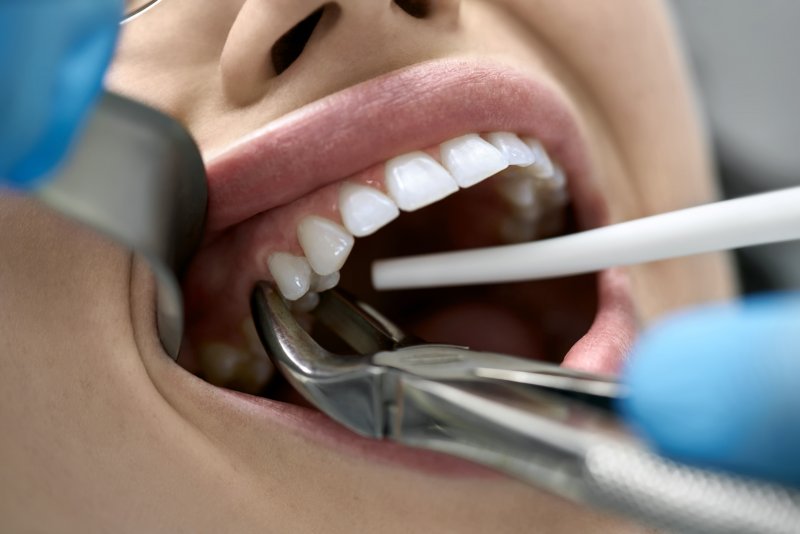
If you’ve just had a tooth pulled, you’re likely glad to be done with treatment. You can now put this experience behind you. Still, you might have lingering concerns about your recovery. In particular, you may worry about getting a dry socket. However, there’s really not much to fear. So long as you follow the post-op instructions, you can avoid a dry socket. As for what these guidelines are, here’s a summary of them from your local Copperas Cove dentist.
Some Context: What’s a Dry Socket?
Before moving forward, it’s helpful to review the basics of dry sockets. Having these details in mind lets you see what’s at stake.
In essence, a dry socket occurs when the extraction site’s blood clot doesn’t develop. This clot serves as a protective layer, so lacking it exposes the treated area’s underlying bone and nerves. Said exposure often leads to intense pain.
Overall, the most common dry socket symptoms are:
- Pain within a few days of a tooth extraction
- Losing the blood clot at the extraction site
- The socket’s underlying bone becomes visible
- An unpleasant mouth taste or bad breath
Dry Sockets are Pretty Rare
Technically, it’s always possible for a dry socket to occur after a tooth extraction. That said, your odds of developing one are slim at the outset.
Ultimately, gums tend to heal quickly after an extraction. They only need about 7-10 days to do so. Therefore, the window where something could interfere with the blood clot is narrow. Statistics prove this reality – only 1-3% of all tooth extraction cases involve a dry socket.
All the same, you should see a dentist immediately if you experience abnormal symptoms. It’s always better to err on the side of caution!
Tips on Preventing a Dry Socket
As an extra insurance, your dentist will provide post-op instructions to help you avoid a dry socket. These guidelines will likely include the following:
- Clean Your Mouth – Good oral hygiene prevents germs and infections from breaking down your blood clot.
- Eat Soft Foods – During the first post-surgery day, only eat soft foods like applesauce, yogurt, and mashed potatoes. That way, you won’t disturb the treatment site.
- Quit Smoking – As it turns out, people who smoke and use tobacco are at high risk of developing dry sockets.
- Don’t Use Straws – If you were to drink with a straw, the resulting suction movement of air and cheek muscles could dislodge your blood clot.
As you can see, there’s no need to worry about getting a dry socket. Just use the tips above, and your extraction recovery should go smoothly!
About the Practice
Cove Choice Dental is based in Copperas Cove, TX. Led by its four top-tier dentists, our practice combines advanced dentistry with excellent customer service. As such, we offer preventive, cosmetic, and restorative services tailored to your unique smile. The team is also well-equipped to perform emergency dental work and wisdom tooth removal. If you’d like more information or to book a visit, you can reach us on our website or by phone at (254)-987-6777.
